Trending
Opinion: How will Project 2025 impact game developers?
The Heritage Foundation's manifesto for the possible next administration could do great harm to many, including large portions of the game development community.

This is an abridged version of my talk from friday october 29th at A_MAZE Indie Connect Prelude here in Berlin.
Title: “Just do it! Making games is easier than you think.”
Thanks to everybody who was there, thanks for the questions afterwards and the nice feedback overall. A big thanks to Thorsten Wiedemann and A_MAZE, as well as to Platoon, the other speakers and everybody involved for a great, fun and inspiring game weekend.
Anyway, here we go:
cover: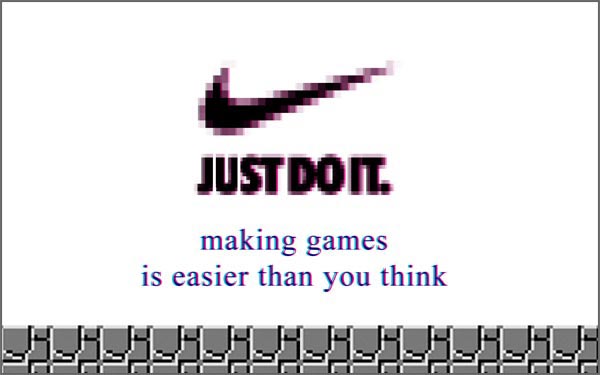
introduction: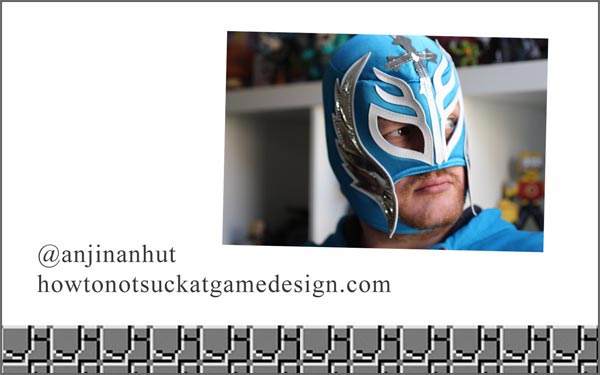
slide 1:
I often get asked in emails, comments or messages, how to get into making games. It goes a bit like, “Hey, me and my friend have an idea for a story and want to make it into game. But we don’t know where to start.” or “I want to make a game, what do I need to start?”…
My short answer always is: “Just do it. You wanna make a game? Make one.” This talk is meant to give a longer answer to this question.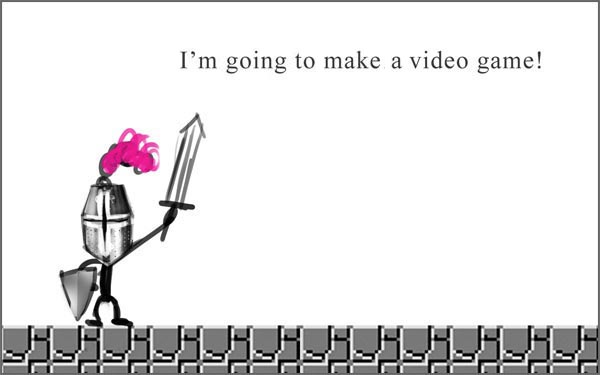
slide 2:
Most people who don’t know where to start get their inspiration to make a game from games they play and love. If you are a beginner, this is a particularly unhelpful starting point.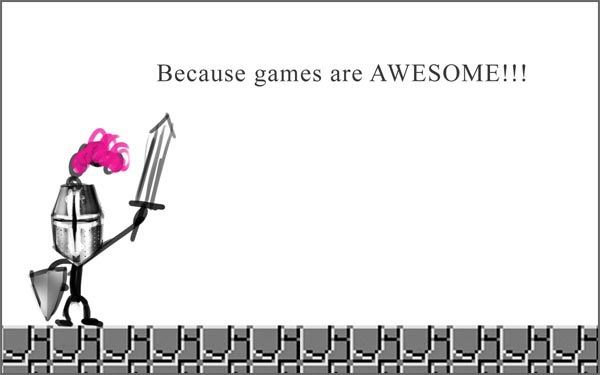
slide 3:
The games you play and love usually are the result of years of experience, big money, publishing deals, studios with a solid infrastructure, trained and skilled creatives and long production times.
Even your XBLA indie title or favorite mobile game are way to complex and big to tackle for a beginner game designer.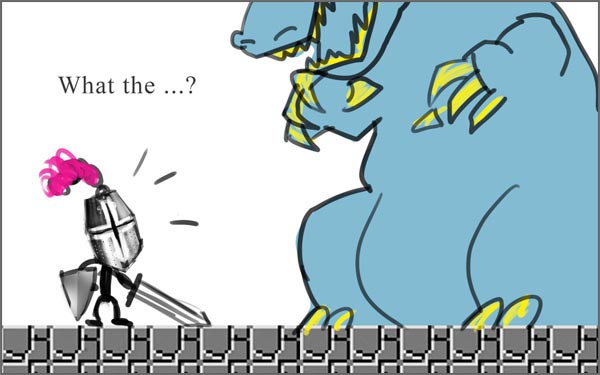
slide 3:
And if you never played around with game creation tools, you probably come empty handed. The prospect of slaying a beast like that with your bare hands can be quite overwhelming.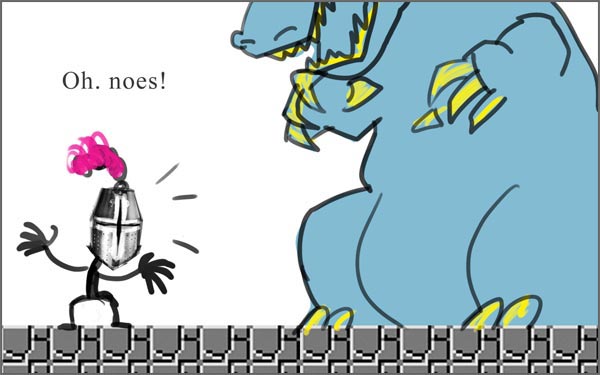
slide 4:
But don’t be afraid. Your bare hands are actually bear hands and you can make a lot of cool stuff with them.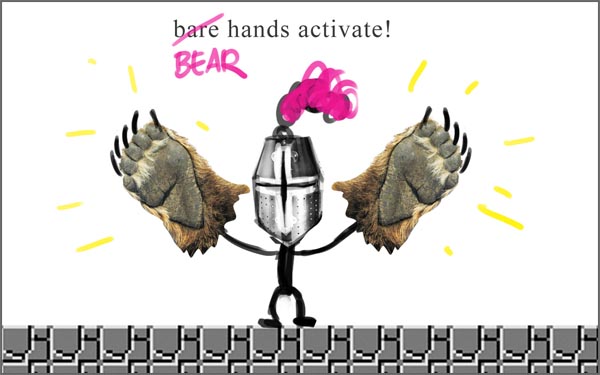
slide 5:
Let’s take competitive multiplayer games for example. Aiming for AAA here, because Starcraft 2 inspired you to do this, is not a promising battle to pick.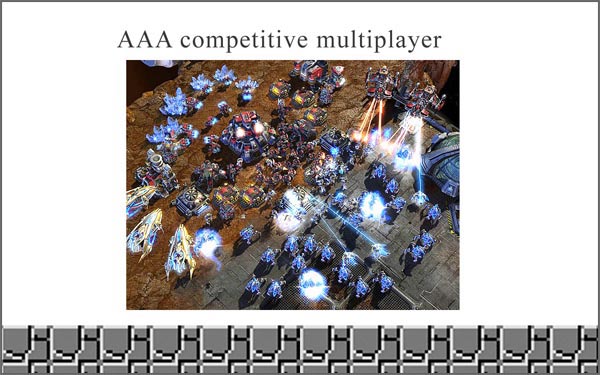
slide 6:
But how about making a bear hands competitive multiplayer game? Like Rock Paper Scissors, played by millions over millions of people for decades and decades now.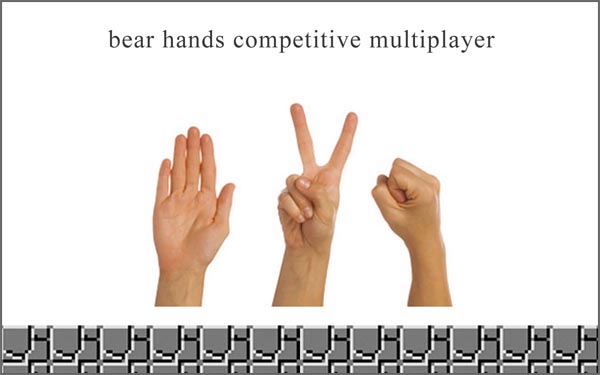
slide 7:
Or getting inspired by an AAA fighting game, like Mortal Kombat…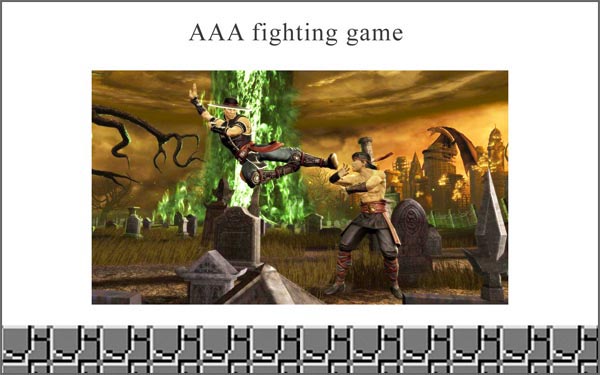
slide 8:
…and coming up with a playground version like the popular Ninja Tag.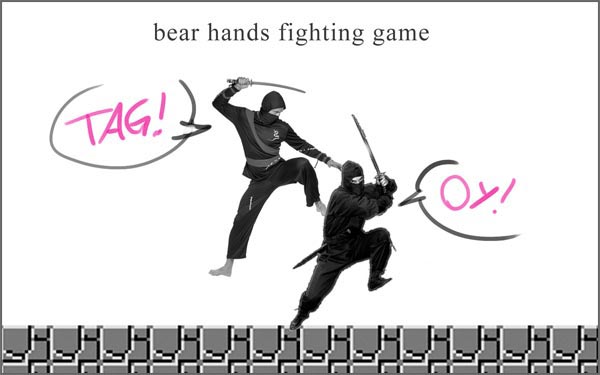
slide 9:
So, if you ask me “Where to start?”, I’ll answer “Right where you are.”.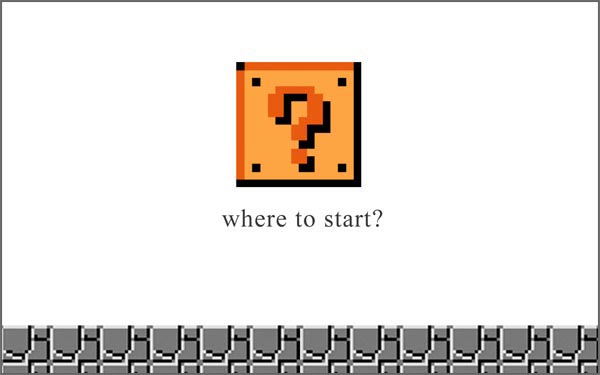
slide 10:
First you gotta know what you are good at. You have to pick a class to start of. You are interested in coming up with game mechanics? Or do you want to make a game that looks great? Can you write, do you have a story you feel like making into a game? Or are you a programmer interested in seeing your work turn into something playable? (Though interested programmers usually already are making games and just look for more ideas and somebody to make the games look good.)
Once you know what you can do or what you enjoy to do, you need to dive into tools and find out what you think you can learn fast.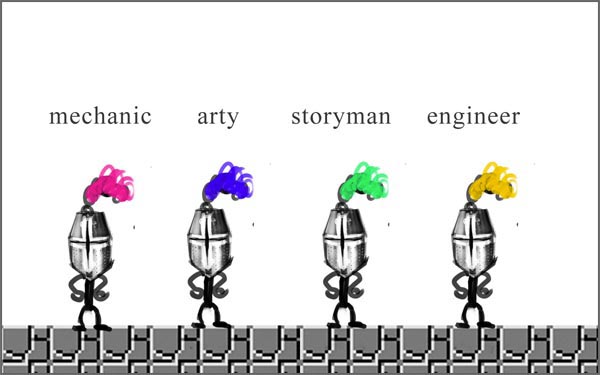
slide 11:
Check out non-digital game making tools. Do paper prototyping or create a pen and paper game or table top. There is a lot of fulfilling game experiences to be created with non-digital methods. Especially if you come from the story, mechanics or art background.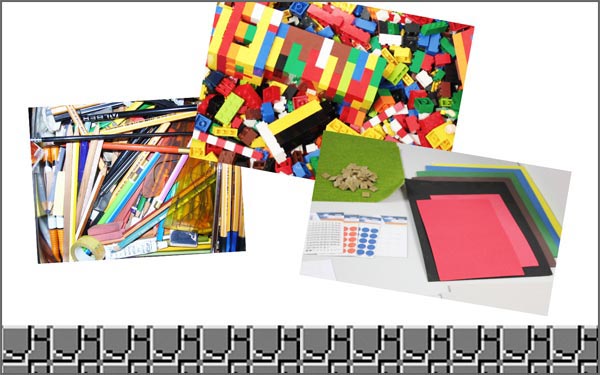
slide 12:
Check out commercially released games where game design is a core part of the package. Or keep an eye out for games with a comfortable level editor. Often those tools offer a fairly user friendly interface and easy to grasp tutorials.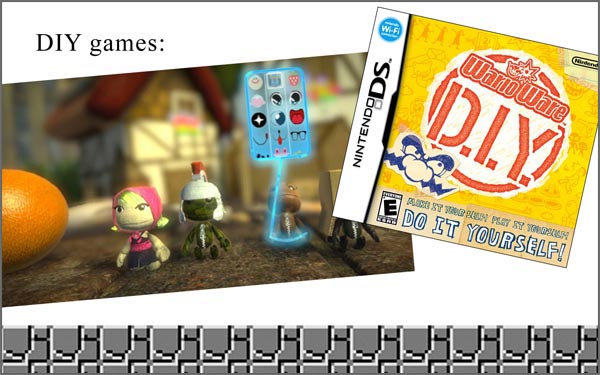
slide 13:
Check out PC games, which have accessible assets and codes to mod them. The modding community is fairly big and modding can mean just giving a game a new coat of paint, to tell a different story or reprogramming big chunks of the game. The choice is yours.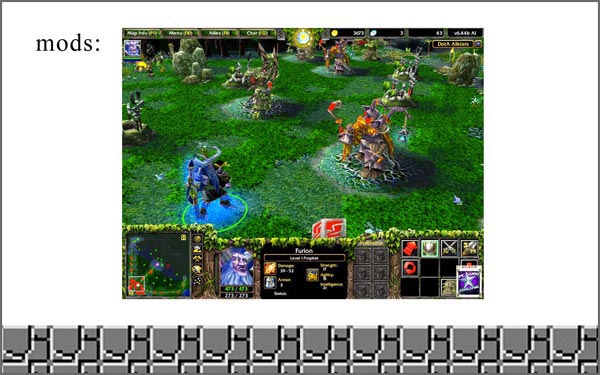
slide 14:
Check free and commercially available game creation software. Those tools often offer a lot of possibilities without the need for code but also allow programmers to expand, tweak and re-create the capabilities of a game.
A nice list of game creation software here.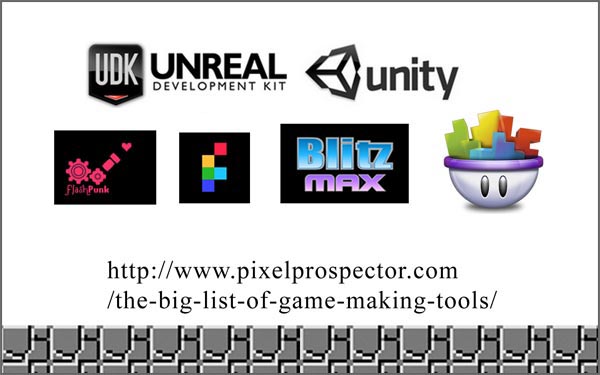
slide 15:
It is important to pick something you can get results with fairly quickly. The idea is to make games in order to learn how to make games. Studying is nice but making games with what is at your disposal right now gives you positive feedback on what you do right away.
You want to make great games? Make games and fight your way through waves of small and shitty games to do it.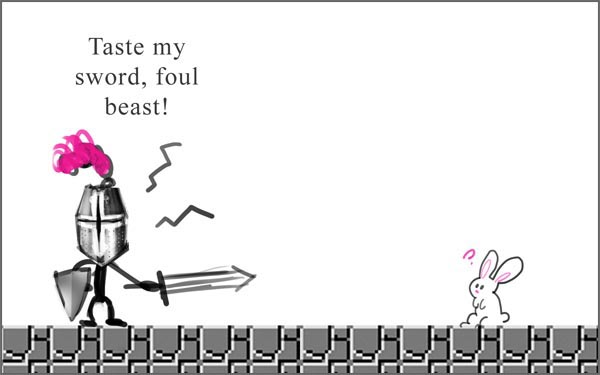
slide 16:
If you got something worthwhile… publish it! Share it, let people play it and comment on it. Blog about your progress, join games platforms like kongregate.
If you do stuff on paper, prepare print-kits for download, make videos of people playing it and explaining it. Getting stuff out there is important to create a channel for positive and critical feedback.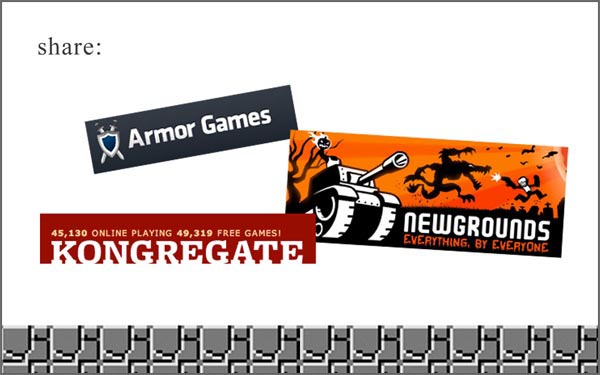
slide 17:
And when you slay small games, game sketches, shitty games, prototypes, not so shitty games and solid games… you will become a better game maker, can look back at a catalogue of unrefined ideas to polish and unlock the ability to use a larger number of more complex tools.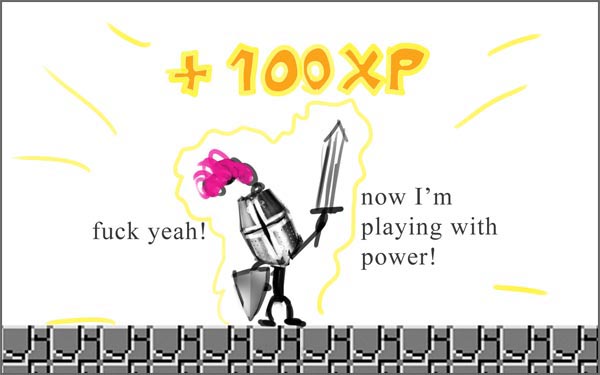
slide 18:
Now go and grind and grind. Until that monster game you wanna make is just a team meeting away. Thank you.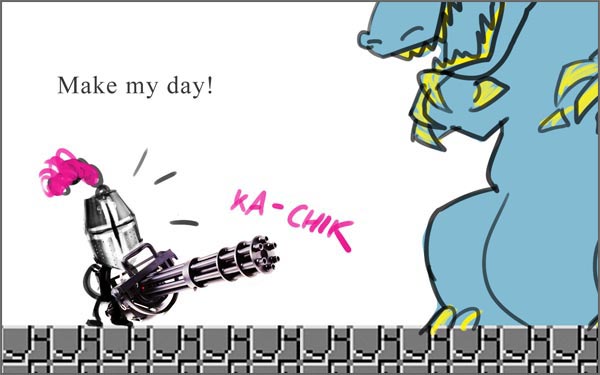
Reblogged fromhowtonotsuckatgamedesign.com.
You May Also Like